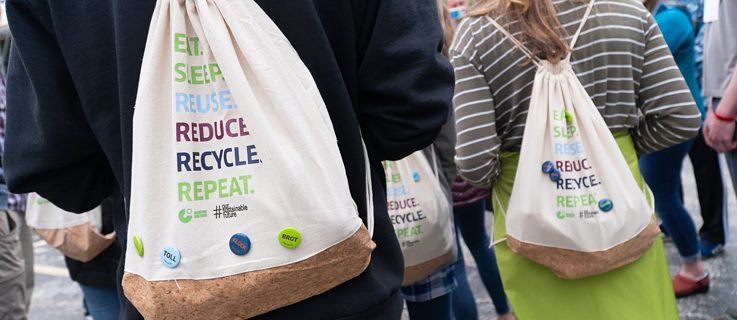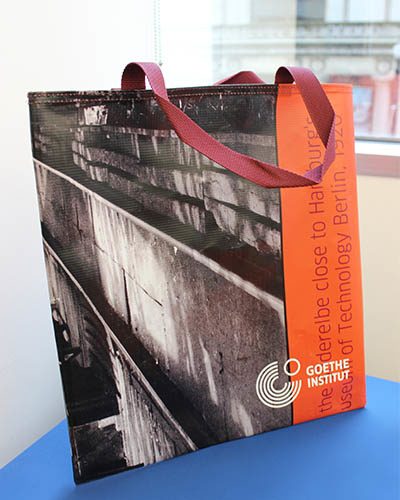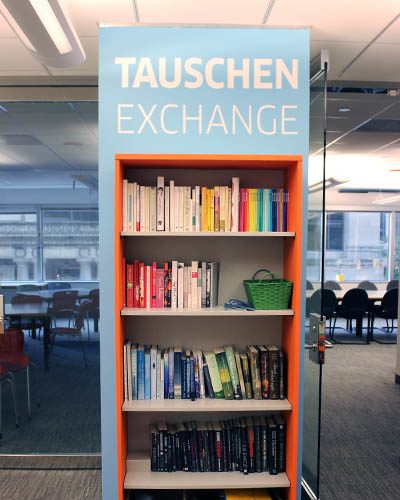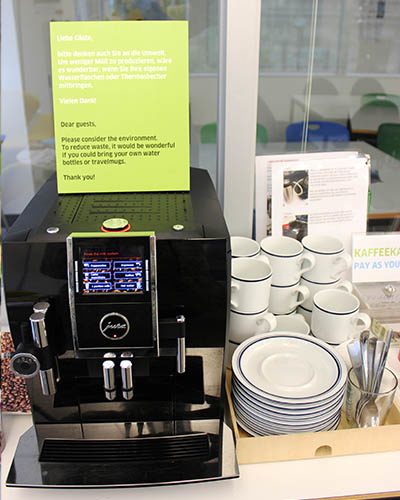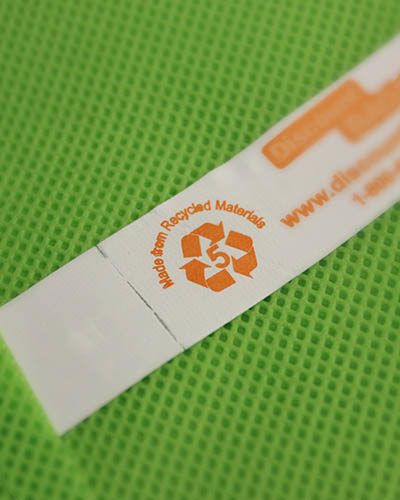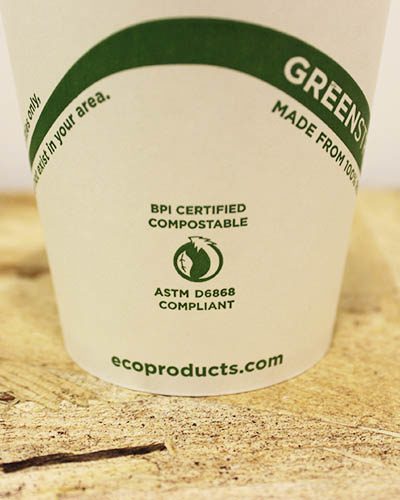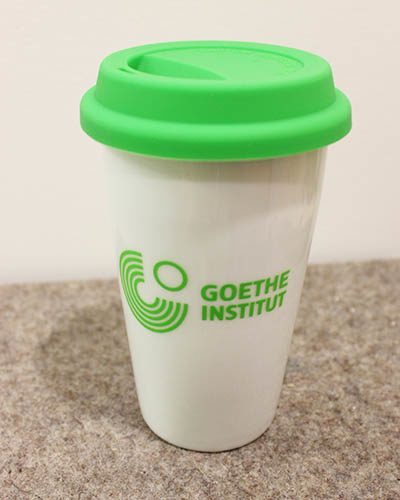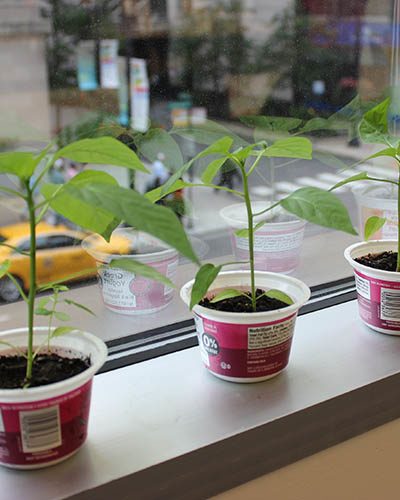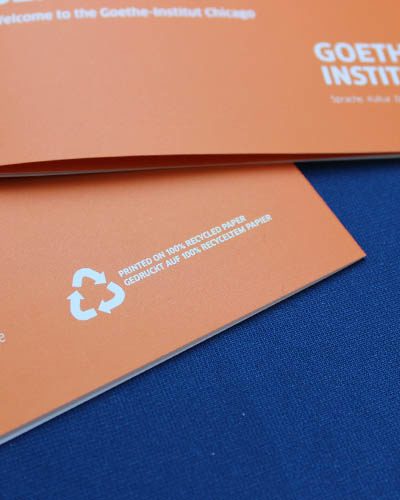Our commitment to sustainability
The Goethe-Institut Chicago is making every effort to be a sustainable institute. That's why employees in Chicago formed the "Green Institute" initiative in the spring of 2017 - it started with small changes: "Lights out!” stickers on the light switches, automatically setting the copier to two-sided printing, and using environmentally friendly cleaning products in the kitchen. Gradually, more and more ideas developed on how to make the work at the Institute more sustainable.
Current projects
In May 2019, we organized the Sustainability Summit at Loyola University as part of the Year of German American Friendship. 300 students and teachers from the USA met to learn more about sustainability in the classroom, gained practical experience in workshops and Future Labs, and exchanged ideas with other teachers and students. While organizing the summit, it was important to us to produce as little plastic waste and garbage as possible. All participants received a reusable metal drinking bottle, cotton and cork drawstring bags, and even the nametags and programs were printed on seeded paper that can easily be planted in soil to grow native wildflowers.Also in May 2019 Germany Week took place at Daley Plaza. The Year of German American Friendship project of the German-American Chamber of Commerce, in cooperation with the Goethe-Institut and the German Consulate General, attracted over 21,000 visitors. Vinyl and net banners adorned the plaza in the heart of Chicago - and these banners, as well as banners from the Sustainability Summit, will be processed into bags and pencil cases by the Chicago company SeamCraft in the summer of 2019. As a result, approximately 300 ft2 of material will be saved from ending up in a landfill, but will be upcycled to useful bags.
Since spring 2019, we have set up a compost bin, in addition to other recycling options, that is used by both visitors and employees. A local company, Collective Resource, collects the compost weekly. If visitors want to enjoy a cup of locally sourced coffee or water, they can choose between the TC 100 stacking tableware - a design icon from the Ulm University of Design, designed by Nick Roericht in 1959 - or compostable paper cups. We also emphasize plastic-free packaging for catering orders and work with local companies that offer organic and local food.
Since July 2017, all print materials are printed on 100% recycled paper. On average, we produce about 170 lbs/77 kg of promotional flyers and brochures – by switching to recycled paper we save 1,7 trees (8 in/20 cm diameter und 45 ft/14 m high; source: Sierra Club. It is also very important to us to order all promotional materials from recycled or environmentally friendly materials and if possible, made in the USA.
Projects 2017-2018
In spring 2017 the "Share/Exchange" shelf became a central meeting point in the foyer of the institute. Students, guests and staff are able to exchange books, shopping bags, notebooks, and much more. The book case itself was old office furniture that we upcycled by painting. We were inspired by a similar project at the Goethe-Institut Bratislava. Since spring 2019, the “Share/Exchange” shelf is many used for exchanging books.
In 2015, we produced a series of banners for our “Building Bridges” exhibit that celebrated the 20th anniversary of Chicago and Hamburg’s sister cities partnership at 2 North Riverside Plaza. In April 2017, the banners, which had been in storage for two years, came back to life: SeamCraft, a local manufacturer in Chicago, was able to transform the banners into 42 tote bags. Every bag is truly unique and was avaiable for purchase at the Goethe-Institut.
We regularly post about our sustainability projects on Instagram, Facebook and Twitter. We always look forward to receiving suggestions and are happy to answer questions: denise.elsman@goethe.de
